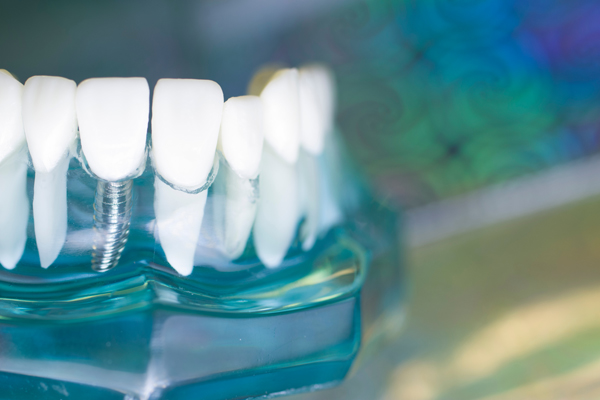Teeth Replacement 101: Dental Implants

Dental implants are a highly effective solution for replacing missing or damaged teeth. They offer a permanent and durable option that not only restores the function of the teeth but also enhances the smile's appearance. As a modern and advanced treatment, dental implants have become the preferred choice for individuals seeking a long-lasting and natural-looking solution to tooth loss.
What are dental implants?
Dental implants are artificial tooth roots comprising biocompatible materials, such as titanium, that the dentist surgically places inside the jawbone to support a restoration, such as crowns, bridges, or dentures. The implant acts as a replacement root for a missing tooth, providing a stable foundation for a custom-made restoration. Unlike traditional dentures or bridges, dental implants remain fixed directly to the jaw, offering improved stability, strength, and comfort.
Ideal candidates for dental implants
Just because one has missing teeth does not automatically make them an ideal candidate for dental implants. Candidates should have a healthy jawbone that can support the implant. In cases where the jawbone has weakened due to tooth loss, a bone graft may be necessary to restore the bone structure before the dentist places the implant.
During the consultation, the dentist assesses the patient's oral health and treatment goals. They also consider whether the patient has an underlying health condition that impacts healing, like diabetes, or whether the patient partakes in poor lifestyle habits, like smoking. All factors help the dentist determine whether dental implants are the patient's most viable tooth replacement option.
The dental implant process
The dental implant process is somewhat lengthy and requires several appointments, spanning six to nine months. The first appointment involves placing the implant post by creating an incision in the gum tissue and drilling a hole in the jawbone.
Benefits of dental implants
Dental implants offer numerous advantages that make them the preferred choice for tooth replacement. These benefits extend beyond simple aesthetics, providing long-term oral health improvements. Here are some of the key benefits of choosing dental implants:
Durability and longevity
Dental implants are designed to last for many years, often for a lifetime, with proper care. Dental implants offer superior strength and durability, unlike traditional restorations, which may need to be replaced or adjusted over time.
Natural look and feel
One of the most significant advantages of dental implants is their natural appearance. The implant's restoration is custom-designed to match the shape, size, and color of the surrounding teeth, creating a seamless and aesthetically pleasing result. Dental implants also restore normal chewing function, making them feel and function just like natural teeth.
Preservation of jawbone health
When a tooth is lost, the underlying jawbone deteriorates over time due to a lack of stimulation. Dental implants help prevent bone loss by providing the necessary stimulation to the jawbone, preserving its structure and density. This can help prevent further oral health issues, such as changes in facial appearance or the loss of neighboring teeth.
Determine your candidacy for dental implants
Dental implants are an excellent solution for teeth replacement, offering numerous benefits such as durability, a natural look, and preserving the jawbone's health. Are you interested in learning more about dental implants? Contact Dr. Harneet Kaur DDS to determine your candidacy.
Request an appointment here: https://mypasoroblesdentist.com or call Dr. Harneet Kaur DDS at (805) 205-9298 for an appointment in our Paso Robles office.
Check out what others are saying about our dental services on Yelp: Dental Implants in Paso Robles, CA.
Related Posts
When a patient has dental implants, follow-up visits are important. Many patients need to have replacement teeth for a variety of reasons. You may have gotten them because you lost several teeth due to a traumatic accident, or you may have been on medication that caused your teeth to deteriorate. Regardless of how you lost your…
Complications after a tooth extraction are uncommon, but understanding the warning signs helps protect long-term oral health. During healing, problems such as infection, dry socket, or prolonged bleeding can occasionally develop. Knowing what to watch for and when to call a dentist supports a smoother recovery. Below are a few things to watch for after…
Seeking a straighter smile often begins with a visit to a cosmetic dentist. These professionals offer advanced teeth straightening options that improve alignment while also considering the appearance of the entire smile. Whether correcting mild crowding or closing noticeable gaps, a cosmetic dentist evaluates structure, bite, and facial balance to create a personalized plan that…
Jaw pain, headaches, and difficulty chewing can severely impact daily life. Fortunately, a TMJ dentist offers specialized care to diagnose and treat disorders of the temporomandibular joint (TMJ), providing relief and restoring comfort. These dental professionals specialize in identifying the underlying causes of TMJ disorders and developing treatment plans tailored to your specific needs.The temporomandibular…
